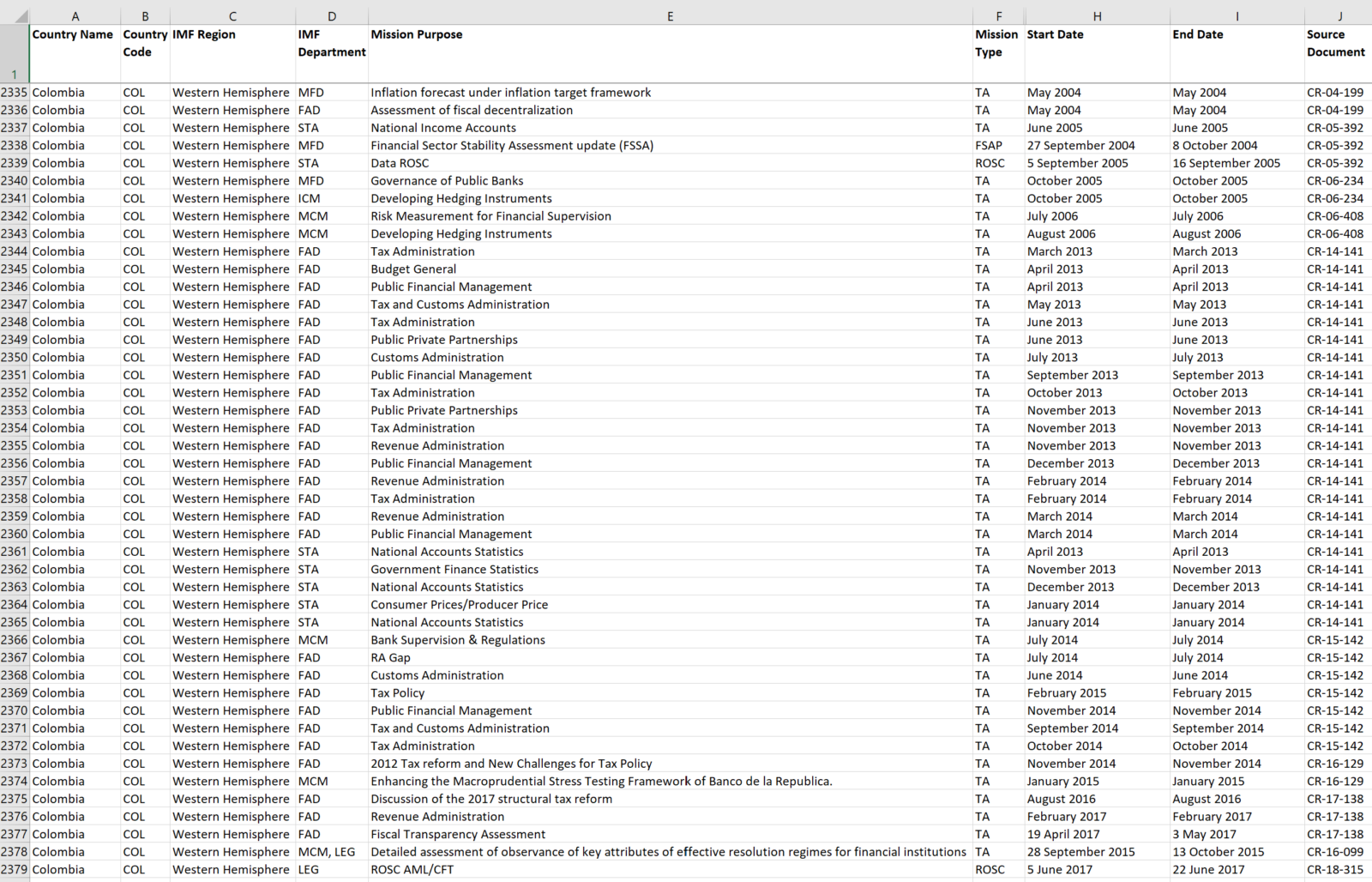The purpose of this project is to compile a systematic, comprehensive, and publicly available database of IMF technical assistance missions between 1964 and 2020.
The dataset will be publicly released in August 2024.
This project is funded by UK Research and Innovation (Grant ES/V012916/1).

What is IMF Technical Assistance?
Technical assistance focuses on strengthening domestic economic institutions, structures, and processes. It accounts for about one-third of the IMF’s operating budget and is provided largely free of charge, initiated upon the request of member countries. This non-binding advice is delivered to country officials through a combination of short-term staff missions from the IMF’s headquarters, long-term in-country placements of resident advisors, and through a network of regional capacity development centres. In this fashion, the IMF has provided technical assistance in some form to all 190 member countries, frequently in partnership with other multilateral institutions and donors. But it is primarily focused on countries in the Global South. In 2020, 52% of the capacity development budget was
directed to low-income countries, 44% to middle-income countries, and the remaining 4% to high-income countries. The IMF has provided technical assistance for over 50 years in public finances, monetary and financial institutions, legal frameworks, and statistics. This includes support for long-term institution-building, along with fact-finding, diagnostic, and consultative activities that dovetail IMF surveillance and lending programmes. Since 2008, delivery of technical assistance has increasingly relied on donor financing, now covering about 50% of total direct costs (from 15% in 2007). This has enabled significant growth in the volume provided, an increasing share of which is delivered through regional capacity development centres.